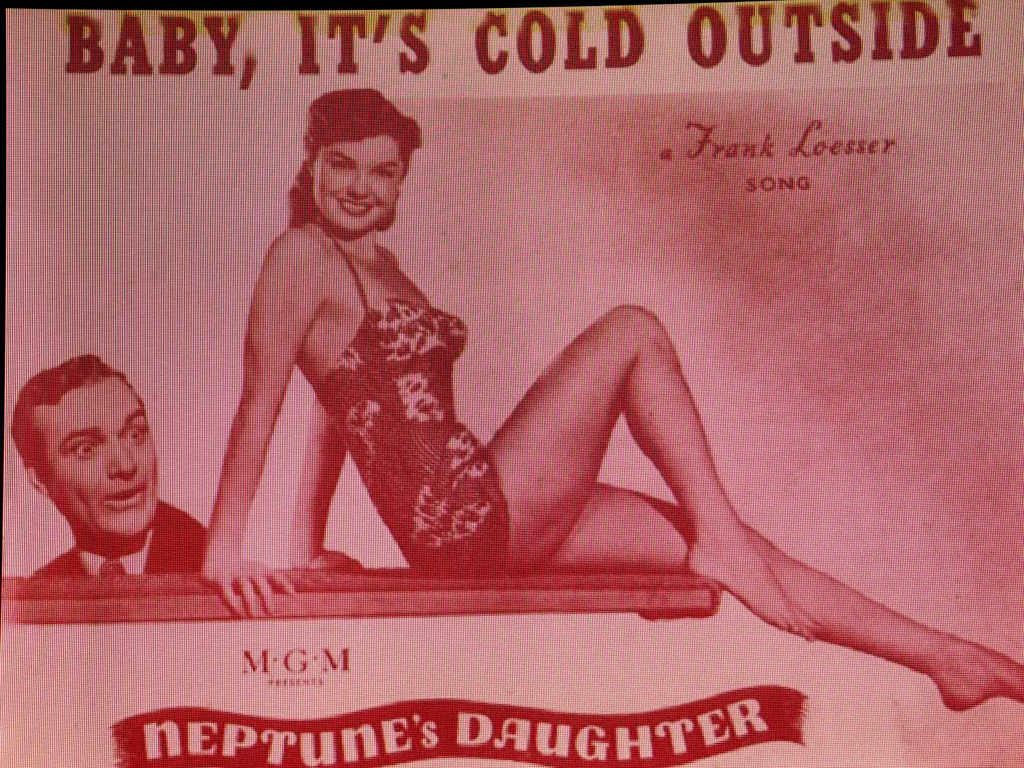Content warning: mentions of sexual assault and rape
The controversy over the classic winter song “Baby, It’s Cold Outside” stems from misinterpretations of its lyrics and themes.
In recent years, Frank Loesser’s classic 1944 song “Baby, It’s Cold Outside” has become subject to plenty of controversy. The song, which is written as a back-and-forth conversation between a male and female singer, has come under fire due to its supposedly misogynistic lyrics, with its male singer supposedly pressuring his female counterpart to spend the night with him.
While the song has always been a bit controversial, the conversation over its lyrics and themes didn’t become widespread until the late 2010s. In response to the backlash, some radio stations have pulled the song from their airwaves.
Any amount of nuance or historical research will reveal that the song’s theme isn’t quite this simple. It’s easy to look at the song from a modern context without critically thinking about its lyrics, but observing the history and the humanity within the song reveals its themes are actually quite innocuous, and in some ways even progressive.
Throughout the song, the female singer makes remarks as to why she should leave the man’s home, followed by the male singer attempting to persuade her to stay. At first, it might seem like the male is pressuring her to stay against her will, but the song makes it clear that this is actually a flirtatious exchange in which the female wants to stay, but she feels that it would be socially unacceptable.
In reality, she is fighting between her wishes to spend the night and the societal expectation that she shouldn’t have control over her own sexual choices. In the 1940s, it was considered scandalous for an unmarried woman to sleep with her boyfriend, something that the song’s female singer is very aware of. If you really want to apply a modern lens to the song, it is actually more of a feminist anthem about a woman reclaiming power over her sexual choices despite the societal backlash she will surely face.
But what about the actual lyrics, and how do they support the idea of an innocent flirtatious exchange between two lovers?
In the song, she claims to be “in some crazy spell.” This is a reference to her feelings of attraction toward the man; she knows that society demands her to go home and conform to their expectations of what a woman should be, yet her feelings of love toward him entice her to stay nonetheless.
This is further evidenced when she says, “I ought to say no, no, no sir.” To someone who doesn’t think critically about the song’s themes or lyrics, this might seem like she simply wants to get away from him. Yet, the word “ought” offers an alternative suggestion: once again, she is mentioning what society is telling her to do, and therefore what she thinks she ought to do, but is conflicted because it does not align with her own desires. There is a difference between “I ought to say no” and “I am saying no,” and this distinction should be recognized.
Furthermore, this line further plays into the flirtatious nature of the song, which is understandably harder to dissect nearly a century after the song’s original release. She is reminding herself that she really shouldn’t stay because of what people might think of her, yet she knows she doesn’t actually want to leave.
In the song, she says “my mother will start to worry, my father will be pacing the floor,” which serves as more evidence that her so-called desire to leave is actually concern over societal and familial expectations. Notice that she never says she wants to leave, yet she makes frequent mention of what others will think of the situation.
The line in the song that arguably attracts the most backlash is the woman’s line, “say, what’s in this drink?” At first, this might seem like a clear reference to date rape drugs, but some research into the line’s historical context reveals a different answer.
A now-removed article from feminist magazine Persephone, which is documented in an article by Mental Floss, states that “what’s in this drink” was actually a commonly used joke in movies in the 1940s, used by characters when they were doing something out of the ordinary and wanted something to blame for their actions. “But the joke is almost always that there is nothing in the drink,” writes the original article. “The drink is the excuse. The drink is the shield someone gets to hold up in front of them to protect from criticism.”
In other words, the line isn’t meant to be taken literally. The man hasn’t actually drugged the woman. She’s jokingly mentioning something being in her drink as a tongue-in-cheek excuse for why she’s sticking around despite knowing she’s societally expected to refuse the man’s advances.
The man’s comments throughout the song are completely aware of the woman’s stance, and he flirtatiously plays into her comments. As she reminds herself that she should probably leave, he flirts in response, playfully asking her to stick around. He’s not pressuring her to stay against her will. He knows that she wants to stay and is flirtatiously playing with her.
The song is nothing more than a flirtatious exchange between two lovers. It’s understandable to discuss the song in a modern context, but there should be some effort to understand the nuance behind Loesser’s original lyrics.
“Baby, It’s Cold Outside” is an interesting case study of media that has shifted in its public understanding due to the changing context of the times since it was written. Yet, to immediately dismiss it as reminiscent of rape culture without giving it any further thought ignores its historical context and the human nature behind its lyrics.

